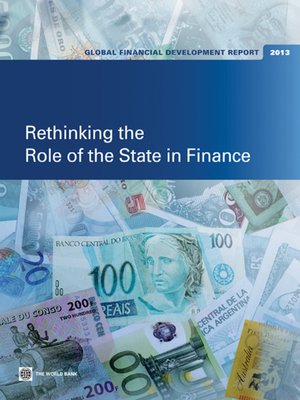Global Financial Development Report 2013
ebook ∣ Rethinking the Role of the State in Finance · Global Financial Development Report
By World Bank

Sign up to save your library
With an OverDrive account, you can save your favorite libraries for at-a-glance information about availability. Find out more about OverDrive accounts.
Find this title in Libby, the library reading app by OverDrive.



Search for a digital library with this title
Title found at these libraries:
| Library Name | Distance |
|---|---|
| Loading... |
Global Financial Development Report 2013 is the first in a new World Bank series. It provides a unique contribution to financial sector policy debates, building on novel data, surveys, research, and wide-ranging country experience, with emphasis on emerging-market and developing economies.
The global financial crisis has challenged conventional thinking on financial sector policies. Launched on the fourth anniversary of the Lehman Brothers collapse—a turning point in the crisis—this volume re-examines a basic question: what is the proper role of the state in financial development? To address the question, this report synthesizes new and existing evidence on the state's performance as financial sector regulator, overseer, promoter, and owner. It calls on state agencies to provide strong regulation and supervision and ensure healthy competition in the sector, and to support financial infrastructure, such as the quality and availability of credit information. It also warns that direct interventions—such as lending by state-owned banks, used in many countries to counteract the crisis—may end up being harmful.
The report also tracks financial systems in more than 200 economies before and during the global financial crisis. Accompanying the hard-copy publication is a website (http://www.worldbank.org/financialdevelopment) that contains extensive datasets, research papers, and other background materials, as well as interactive features.
The report's findings and policy recommendations are relevant for policy makers; staff of central banks, ministries of finance, and financial regulation agencies; nongovernmental organizations and donors; academics and other researchers and analysts; and members of the finance and development community.







